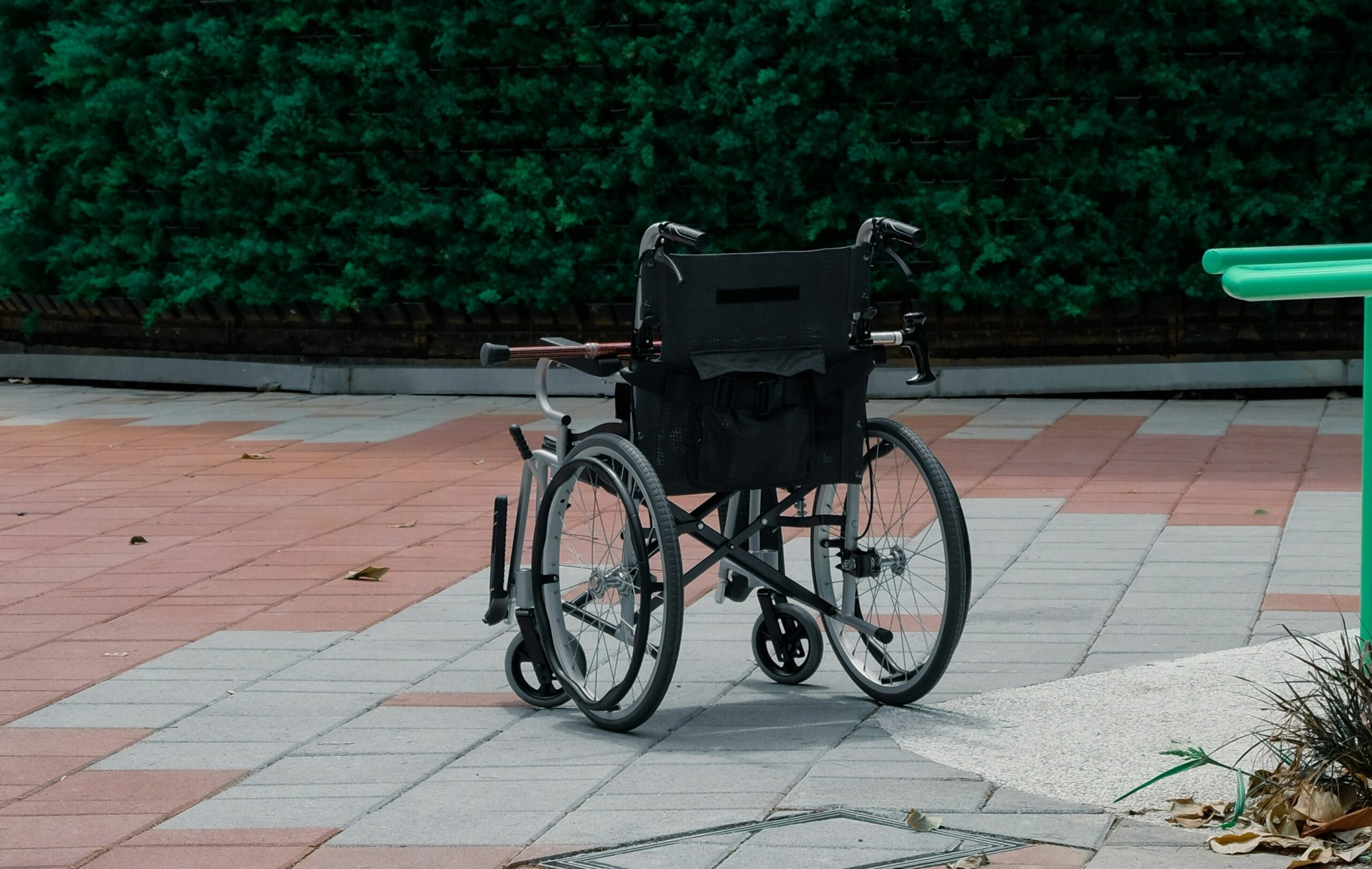Yeh Yeh loses the use of his legs when I turn twelve.
Two years later, he loses the use of his eyes.
Overnight, my grandfather has become as helpless as a newborn baby.
This is the first time someone I’ve known all my life
ages in real time.
Immortality
really is just the stuff of comic books and computer games.
I imagine that old age feels like being in the departure lounge at the airport,
bags packed, boarding pass in hand,
waiting for an inevitable flight that’s been delayed.
Counting the hours, the minutes, the seconds.
How does Yeh Yeh bear it?
Every time I look at my grandfather, I feel like crying.
Sometimes I do.
I am also embarrassed, and that makes me feel guilty.
But mostly, I am terrified
of the death that will take him
and everyone that I love
though I know
it is inescapable.
Yeh Yeh and his helper move in to live with us.
He spends most of his time in his room, which is next to mine.
He doesn’t care if it’s night or day.
He’s right when he says it hardly matters any more.
It’s a sort of freedom, he proclaims.
It’s a form of torture, Mum grunts.
She’s a light sleeper, and his night-time music rouses her.
She likes Frank Sinatra but less so at three in the morning.
Looking after Yeh Yeh becomes part of our daily routine.
An arduous but necessary labour.
I’m ashamed to admit that I do everything to avoid it.
Schoolwork and piano practice suddenly become much more interesting.
The least you can do is spend some time with him, reproaches Mum.
It’s not like he has much left.
In that case, what’s the point? the voice in my head hisses.
And then it whispers the question that gnaws at me.
What if he dies on me? What do I do then?
Things change when Uncle Sam upgrades his car from a Mercedes to a Tesla.
Model X.
The one like the Batmobile,
with doors as silent and slick as beetle wings.
That drives Dad crazy, but he can’t afford a new car.
Instead, he gets the new iPhone Xs. In gold.
Dad and his brother have always been competitive.
I’m glad I’m an only child.
Because of this sibling rivalry, I inherit Dad’s old phone.
I’m the last kid in my grade to get a smartphone.
But my device has no connectivity.
No amusements, no distractions.
No evil electromagnetic rays to fry your brains, according to Mum.
We’re the only weird family in the whole of Hong Kong
without wifi.
Still, the phone has its uses. There’s a camera that I can take selfies with.
And it has a really cool app called Voice Memo that I can record stuff with.
Well, at least I think it’s cool.
Yeh Yeh thinks it’s cool too.
There is a game that we start to play.
I can’t remember how it came about.
Probably on one of those late school day afternoons.
Bored numb by homework, I idle outside the bathroom, waiting my turn.
I can see into Yeh Yeh’s room.
He’s sitting in his chair by the window
staring into the fading light, like a sunflower.
I hesitate.
Listen to this, I say, holding the phone up to his ear.
The old man listens as I play the 16-second recording.
He cocks his head to one side, his smile widening.
Your Dad in the toilet ah? he guesses.
No, your daughter, I laugh.
Yeh Yeh chuckles.
Have you heard of the Chinese saying, “Like a female cow peeing”?
That’s your Mum alright.
We giggle as I hit the play button again.
The next day, I take the phone into the kitchen.
Our Filipino helper has just finished dissecting a small mound of vegetables.
Hairy gourd, Buddha’s fist, and lady’s fingers.
When she spots that I am pilfering snacks, she chases me out.
Hehhh! Spoil your dinner! she flicks at me with her dishcloth.
Yeh Yeh is half asleep in his chair.
I slip a wafer biscuit between his fingers.
Guess who? I ask, as Yeh Yeh stirs.
The recording I play is a little longer this time, almost a minute.
It doesn’t take him very long to figure it out.
Aunty Naida lor, singing her Christian songs.
He clumsily lifts the biscuit to his quivering lips.
I look away.
You know, my hearing is so good now, Yeh Yeh says with pride.
I think it got better after I went blind.
He shakes his head ruefully. Hai, when I could, I didn’t use my eyes enough.
He moves his face closer to where he thinks mine is.
Hah, I can hear all sorts of things that I couldn’t hear before.
A pause.
Do you know you talk in your sleep?
That’s news to me.
You can’t hear through walls, Yeh Yeh, I retort sceptically.
He sits back.
Humph. You might want to try recording yourself sometime.
So, how? asks Yeh Yeh a few days later.
It is easier to record several hours of sleep
than to listen to the playback for subconscious confessions.
I think you’ve tricked me into listening
to hours and hours of my own breathing, I admonish.
The old man chuckles.
Oddly, that makes me glad.
Sunday evening.
We’re waiting for the rest of the troops to come over for our weekly family dinner.
Pompous Uncle Sam, glitzy Aunt Doris and my annoying, spoilt cousins.
I lay front forward on Yeh Yeh’s bed, and scroll down the list of recordings.
What’s this one?
I hold up the phone, and crank up the volume.
Dull, hard thuds, followed by a sharp thwack, then more dull, hard thuds.
What else could it be? Badminton lor. With such short rallies, must be you and your Dad.
See, haiya, can’t get it over the net more than once, Yeh Yeh scoffs.
Stop. Scroll, scroll. Stop. Play.
And this one?
A low mechanical groan that rapidly crescendos before fading,
followed by “ding ding, ding ding, ding ding”.
That’s so easy. The tram la! Do you think I was born yesterday?
The next one’s harder.
The metallic clatter of small wheels hitting the road, footsteps trailing behind.
Yeh Yeh pauses, and furrows his brow.
One of those hand pushed trollies.
That grannies load up with flattened paper boxes and old newspapers?
Another point to grandad.
I have to admit, he’s pretty sharp still.
OK, the next one is an expert level question, I announce.
I hit play, and set the volume as high as it will go.
The rumble of conversations.
Passing footfall.
The hum of cars.
Then the faint click of something small hitting a smooth surface.
It is deliberate, thoughtful even.
A long pause. Murmurs, muted comments.
Another click.
A chuckle, then the sound of a lighter being struck.
Wah, Yeh Yeh snorts. How long do I have to keep listening?
I ignore him and play it again, for good measure.
Well? Do you want a hint? I offer. Don’t know leh?
A smug pause.
A bunch of old geezers playing Chinese chess, he says finally.
Sharp as a tack, he is.
Ai, I’ve eaten more salt than you have eaten rice!
Don’t you find it stuffy in here?
I switch on the electric fan.
I sit cross legged on the floor and play another recording.
Several sharp rustles, not perfectly in unison.
Then again, and again.
The earwax-melting strains of a Chinese opera tune float in the background.
A dog barks. A child laughs.
Yeh Yeh turns his face towards my voice even though he can’t see me.
A flicker of anguish, gone as quickly as it appears.
That’s the public park, he says quietly.
Aunties doing a fan dance. The song is “Departed Sparrows.”
You know who loved that song? Lily. Your grandma.
He turns his face away.
You were just a baby when she died.
I stop the recording.
Suddenly all I can hear is the whir of fan blades
that have no beginning and no end.
After that, we don’t play our game much anymore.
It’s no substitute for the real thing anyway.
The sight of my grandfather shrinking before my eyes frightens me.
But I don’t think as much about the “D” word
when we’re doing something together.
The shared activity helps me
and I’d like to think
it helps him too.
As the summer holidays roll around,
I suggest that I take Yeh Yeh out for his walks, and give Aunty Naida a break.
I’m old enough,
and more importantly, strong enough to handle a wheelchair.
Mum is so elated, she tears up.
You’re a good grandchild.
Dad is suspicious.
You’re not playing Pokemon Go on that phone are you?
Yeh Yeh is ambivalent.
Not really bothered, go or not go.
We go.
Every day.
We wind our way to the wet market
full of fruit sellers who bray,
butchers who chop freshly slaughtered meat and
seafood vendors who scrape scales off glistening fish.
It stinks and it’s loud, but it’s kind of fun, no? I shout in Yeh Yeh’s ear.
I can only see the back of his head.
But he gives me a thumbs up.
It’s all good.
We head to the local cha chaan teng
where waitresses bark orders,
aunties gossip over French toast drowning in condensed milk and
labourers in grimy vests cuss and argue over iced coffee.
Good milk tea? I take the empty cup from Yeh Yeh’s hand,
and brush the bor luo pau crumbs off his lap.
Another thumbs up.
We get our exercise at the public park,
which displays signs that prohibit every activity except breathing.
Runners pant as they pass our bench,
toddlers stumble drunkenly around their nannies and
elderly folk noisily exchange news and not-so-news.
The thumb wavers.
Smells too much of sweat. Full of old people with one foot in the grave, he grumbles.
Yeh Yeh’s favourite haunt turns out to be the working pier near our apartment block.
In the evenings, it’s also the quietest.
The only sounds are the gentle lapping of waves against concrete,
the crunch of debris underfoot,
and the eerie caw of the occasional seagull.
We sit together
and I watch the sun go down.
The red burning orb is like a salted duck’s egg yolk
suspended on the horizon before sinking
into the unknown depths of the ocean.
I wrap the blanket around Yeh Yeh’s thin shoulders.
and he hums his thanks.
A faint smile plays on his lips.
Two thumbs up.
Towards the end of his life,
my grandfather becomes a man
of fewer and fewer words.
One day, he passes, uncomplaining, to the other side,
as if dozing off into one of his naps.
I am there, and I know exactly what to do.
I am not afraid.
Many years later, I realise with agonizing regret,
that none of my voice memos
– those many random, fanciful and mischievous recordings –
none are of my Yeh Yeh’s voice.
But I can still hear him sometimes, as if he is right beside me.
In between the rumble of passing buses,
before the clink of a spoon against a chipped ceramic teacup,
or after the mournful lament of a ship’s foghorn.
I know so much more than before,
and I can hear so much more now too.
It is always around us,
life we can no longer see.




